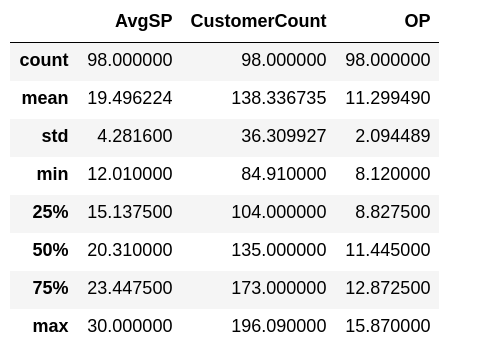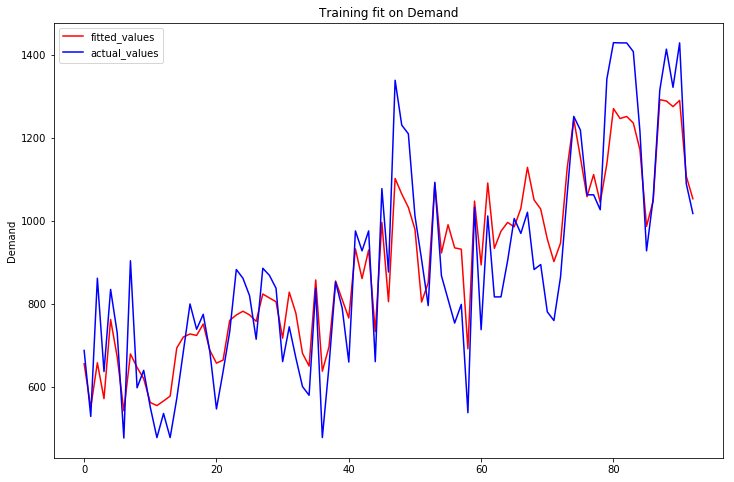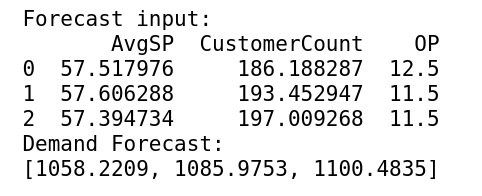- Predicting the demand of Clothes using LSTM and 3-layer neural network.
- To run the given codes, install Keras with tensorflow backend in your IPython shell (preferably Anaconda).
Business Problem
- Predicting the demand of various Clothing types in order to avoid inventory wastage.
- No input is at disposal, hence the input variables need to be forecasted and then the target variable is regressed through the forecasted input variable
Data Definition and Understanding
- Input variables
- AvgSP - Average Selling Price of SKU
- OP - Average Selling Price of various clothes
- CustomerCount - Total GT Customers for the given SKU ( = CustomerCount + Missed Customers)
-
Target Variable - ActualDemand of SKU ( = Ordered Quantity + Missed Demand)
-
Summary Stats
Training and Test Datasets
- The last week of the complete dataset is considered for testing while the rest of the dataset is considered for training
Function to create Data Input to model
- AvgSP
- @AvgSP is predicted using time series forecasting.
- Long Short-Term Memory (Recurrent Neural Network) method is used for forecasting. The forecasting problem is now considered as a supervised learning problem where the input is the value prior to the target day.
- LSTM is a special type of Neural Network which remembers information across long sequences to facilitate the forecasting.
- Forecasting results
- CustomerCount
- @CustomerCount is predicted using the same method as @AvgSP
- Forecasting Results
Data Modelling
Model Name
- 3-layer Neural Network using Keras Library (tensorflow backend)
- The network is made up of 3 layers:
- Input layer
- Takes input variables and converts them into input equation
- Parameters: no. of neurons (memory blocks) = 16, activation function = linear, weight initializer = normal distribution, kernel and activity regularizer = L1 (alpha = 0.1)
- Hidden Layer
- The processing (optimization) takes place in this layer.
- Parameters: no. of neurons = 8, activation function = linear, weight initializer = normal distribution, kernel and activity regularizer = L1 (alpha = 0.1)
- Output Layer
- Converts the processed results into a reverse scaled output.
Model Performance






